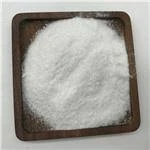Understanding CoQ10 and PQQ Two Powerful Nutrients for Health
In the realm of nutritional supplements, Coenzyme Q10 (CoQ10) and Pyrroloquinoline Quinone (PQQ) have emerged as two powerful substances that are gaining attention for their potential health benefits. Both compounds play critical roles in cellular energy production and exhibit antioxidant properties, making them valuable for overall well-being.
What is CoQ10?
CoQ10 is a naturally occurring antioxidant found in the body, particularly in the mitochondria, which are the energy-producing structures within our cells. Its primary function is to assist in the production of adenosine triphosphate (ATP), the energy currency of the cell. As we age, the levels of CoQ10 in our body tend to decline, which can lead to decreased energy production and increased oxidative stress.
Research suggests that CoQ10 may have a variety of health benefits. It has been studied for its potential role in improving heart health by enhancing cardiovascular function and reducing the risk of heart disease. CoQ10 may also help alleviate certain conditions associated with aging, such as muscle weakness and fatigue. Several studies have indicated that CoQ10 supplementation can improve energy levels in individuals with chronic fatigue syndrome and fibromyalgia.
Furthermore, CoQ10's antioxidant properties help combat free radicals, which are harmful molecules that can cause cellular damage and contribute to the aging process and the development of chronic diseases. By neutralizing free radicals, CoQ10 can support overall health and longevity.
What is PQQ?
Pyrroloquinoline Quinone (PQQ) is a lesser-known but equally significant compound that has gained attention in scientific circles. PQQ is a redox cofactor that is essential for various biochemical reactions. It plays a crucial role in mitochondrial function, similar to CoQ10, by supporting cellular energy production.
coq10 pqq

The unique aspect of PQQ is its ability to promote the growth of new mitochondria, a process known as mitochondrial biogenesis. This characteristic makes PQQ a compelling candidate for enhancing energy metabolism and improving overall cellular health. Some studies have suggested that PQQ can improve cognitive function, reduce inflammation, and enhance cardiovascular health.
Moreover, PQQ possesses potent antioxidant properties, which help protect cells from oxidative stress. By scavenging free radicals and reducing inflammation, PQQ may contribute to better health outcomes and a lower risk of developing chronic diseases.
Synergistic Effects of CoQ10 and PQQ
While both CoQ10 and PQQ offer distinct health benefits, their effects can be even more profound when taken together. The synergistic interaction between these two nutrients may enhance cellular energy production, improve mitochondrial function, and provide robust protection against oxidative stress.
Supplements that combine CoQ10 and PQQ are becoming increasingly popular among health enthusiasts looking to boost their energy levels, support cardiovascular health, and promote overall well-being. Individuals aiming to improve their physical performance, cognitive function, or manage the effects of aging may find these combined supplements particularly beneficial.
Conclusion
In conclusion, CoQ10 and PQQ are two powerful nutrients that offer significant health benefits, particularly in the areas of energy production, antioxidant protection, and mitochondrial health. As we continue to explore and understand the potential of these compounds, they may become essential components of a proactive approach to health and wellness. Whether you are aiming to enhance your energy levels, support heart health, or protect against oxidative damage, considering a supplement that includes both CoQ10 and PQQ could be a wise choice in your journey towards optimal health. Always consult with a healthcare provider before beginning any new supplement regimen to ensure it aligns with your health needs and goals.

